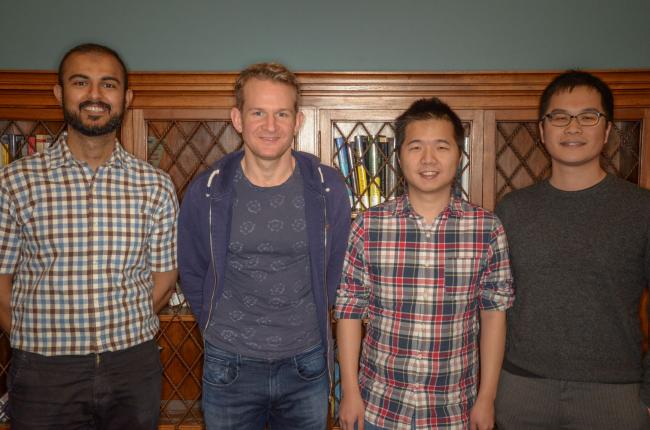
Last year, River Campus Libraries (RCL) economics librarian Kathy Wu had to say, “No” to an undergraduate student. The student went to Wu needing to purchase data for her senior thesis research. It was reasonably inexpensive, but Wu had to deny the request. The reason: it would only be licensed to the student.
While data sets are likely an unthought-of—albeit important—segment of the University Libraries’ collections, they face the same level of purchasing rigor as books, periodicals, and other materials. The RCL’s data purchasing process requires that requests meet several criteria. One being that the data will be licensed to the entire campus. Others include the cost, a demonstrated connection to current research and the curriculum, and the need for technical support.
Data request denials don’t happen often, but they do happen. And for Wu and other RCL librarians, that’s too often. The “one time is too many” mentality inspired the creation of a data grant program that provides funding to buy data that falls outside the purchase requirements.
Supporting the research of undergraduate and graduate students enrolled in Arts, Sciences & Engineering, the Warner School of Education and Human Development, and Simon Business School, these grants unlock data sets that are hardest for students to access. Typically, this is data that is too expensive, exclusive, or specialized.
“This gives us a unique way to directly support data-driven student research,” says Adrienne Canino, science and data outreach librarian. “It also helps ensure these students have the opportunity to experience being a primary investigator.”
In the inaugural round of awards, two pairs of economics graduate students received grants: Shafaat Khan and his partner, Armen Khederlarian, and Min Fang and his partner, Zibin Huang.
Khan and Khederlarian are using their grant to further explore the impact of trading goods and services. In their study, they highlight the importance of correctly measuring the usage of imported goods.
“We were thrilled,” says Khan on learning about the grant award. “It meant we could properly test our theory, using the kind of data that’s often used in existing studies. This data is a big step in completing our PhD theses.”
Fang and Huang are investigating income inequality. Using Chinese data, they are looking into how migration and housing constraints affect wealth and income inequality between migrants and residents in cities across China.
“It’s usually hard for PhD students to access funding for research, especially the kind of data we needed,” says Fang. “So, we were pretty excited to get the grant. And we are really happy that the River Campus Libraries offers this support.”
The next round of awards will take place in the spring of 2020 and will continue to occur in every subsequent semester. The deadline for the spring grant applications is February 1, 2020. ∎
For questions about data purchasing or the grant program, please contact Kathy Wu. If you are interested in supporting the grant program, please contact Pam Jackson. Enjoy reading about the University of Rochester Libraries? Subscribe to Tower Talk.

